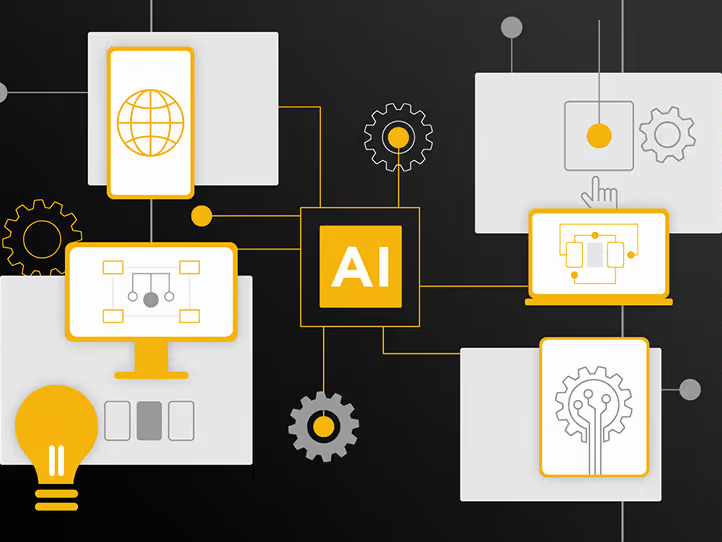Considering a new tech stack? Laravel could be the best choice

Getting lost among the endless tech stacks on offer?
When shiny new frameworks seem to pop up all the time, it can be overwhelming trying to figure out which one fits your needs. Should you go with something trendy? Something easy? Something flexible? There’s a lot to consider.
In this blog, I’m diving into why Laravel might just be the perfect fit for your website or web application. Whether you're building something simple or scaling up a complex platform, Laravel brings a lot to the table—and I’ll walk you through exactly why it stands out.
Let’s start with the basics: what is Laravel?
Laravel is a modern PHP web-application framework known for its elegant syntax, powerful features, and developer-friendly tools. Whether you're using Laravel 10 or 11, the framework provides a robust foundation for building secure and scalable web applications.
It simplifies the development of custom web platforms, business applications, and enterprise-level software with a rich set of features. And its handy modular structure and reusable components help accelerate development, reduce costs, and improve performance. All-in-all, that makes it a top choice for companies looking to build high-quality digital solutions.
So how can it make building your website easier?
Laravel comes with a ton of handy features, right out of the box, allowing for quick (and cheap!) creation of a minimum viable product (MVP). Take Laravel migrations: this feature allows developers to programmatically create database tables and columns, populating them with the required data needed for the site to function. The benefit? It makes it really easy to pass the site to another developer and immediately have them set up the development environment and the correct database. It can also be used to modify a pre-existing database in a safe and efficient way.
Another benefit of using Laravel is the unit testing that comes with it. This allows for robust code-driven tests to be written and executed upon any deployment. Combining this with Test-Driven Development, you can easily and autonomously ensure all edge cases are covered before your site goes live, providing a seamless user experience.
Why you should consider going headless
It’s not as alarming as it sounds. A headless website is one where the frontend and backend of the site run separately. This can be created by using Laravel with React, or any front-end framework of your choice. A huge benefit of this is that the frontend can be optimised to provide an extremely speedy page load, and faster navigation of the site for the users. This has been proven to increase conversion rates and enhance your SEO score, meaning you reach a larger audience.
Headless sites are also more reliable and robust than standard websites. Why? Because any issues with the backend will not be reflected in the front end.
What really sets Laravel apart?
One of Laravel’s biggest strengths is its powerful ecosystem of plugins and packages that helps developers build faster, smarter, and more efficiently. Whether you’re launching a new web application or optimising an existing Laravel website, there are packages designed to handle everything you need.
Popular starter kits like Laravel Breeze and Laravel Jetstream make setting up user authentication and security features quick and easy. If you need a professional admin panel, Filament offers a low-code solution for creating beautiful dashboards and backend systems. Managing roles and permissions? Bouncer for Laravel provides flexible access control without the usual complexity.
And when it comes to boosting your site’s visibility, SEO packages like Laravel SEO Tools help optimise meta tags and generate sitemaps effortlessly. No matter your project size, Laravel’s rich package ecosystem saves development time, enhances performance, and helps deliver a more scalable, SEO-friendly web application.
When should you use Laravel?
Over 700,000 sites currently use Laravel and that’s because it’s the ideal candidate in a lot of situations.
It’s an excellent choice for businesses building a learning management system or Partner Portal. These types of applications benefit from Laravel’s speed, scalability, and strong support for role-based access control. Its built-in authentication and permission systems make it easy to enforce strict user-level access, meaning you can be sure of a secure and robust platform tailored to complex user hierarchies.
It’s also a great fit for custom business tools like inventory management systems, internal dashboards, or booking platforms. When off-the-shelf software doesn’t meet specific operational needs, Laravel’s flexibility allows developers to build tailored solutions that integrate seamlessly with third-party APIs —whether it's for payments, shipping, CRMs, or analytics. This makes it easy to connect external services while automating workflows and syncing data in real time.
Combined with its clean architecture and rich ecosystem, Laravel is ideal for developing reliable, maintainable apps that power day-to-day operations.
If you’re interested in finding out how Laravel could work for your business, we’re here to help.
Get in touch at marketing@proctorsgroup.com








